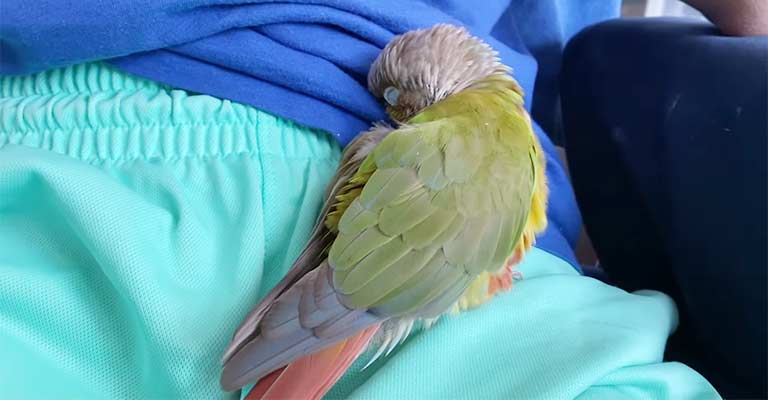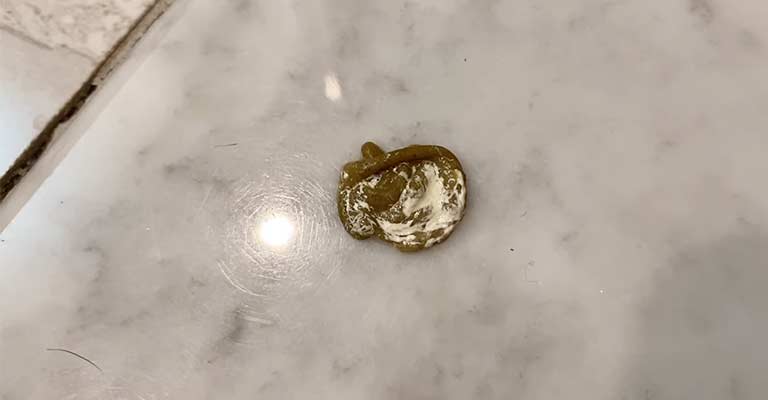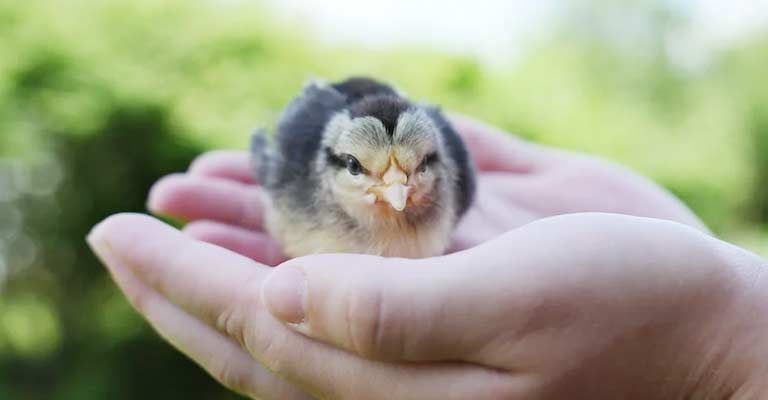Aerosol poisoning in birds poses a significant threat to their respiratory health and overall well-being. Birds, with their highly sensitive respiratory systems, are vulnerable to airborne toxins released from common household items.
Teflon-coated cookware, cleaning products, paints, and various aerosolized substances can lead to severe health issues in our feathered companions.
Recognizing the signs of aerosol poisoning and understanding the common causes are crucial for bird owners to create a safe environment.
This guide explores the types, signs, causes, and treatments associated with aerosol poisoning in birds, empowering caregivers with the knowledge needed to protect their avian friends from potential hazards.

Aerosol Poisoning In Birds
Aerosol poisoning poses a serious threat to the well-being of our avian companions. Birds are highly sensitive to airborne toxins, and exposure to certain aerosols can lead to severe health issues.
Here are the types of aerosol poisoning in birds:
Teflon Toxicosis
Overheating non-stick cookware, such as Teflon pans, releases toxic fumes that are extremely harmful to birds. Inhalation of these fumes can lead to Teflon toxicosis, causing respiratory distress, lethargy, and, in severe cases, fatalities.
Fumes from Cleaning Products
Household cleaning products often contain volatile compounds that can be toxic to birds when inhaled. Fumes from bleach, ammonia, and other harsh chemicals may lead to respiratory issues, eye irritation, and digestive problems in birds.
Paint Fumes
Birds exposed to freshly painted areas are at risk of inhaling harmful paint fumes. The toxic components in paint can lead to neurological symptoms, respiratory distress, and digestive issues in avian companions.
Insecticides and Pesticides
Aerosolized insecticides and pesticides, commonly used in homes and gardens, pose a significant threat to birds. Inhaling these toxic substances can result in symptoms like tremors, difficulty breathing, and even death.
Air Fresheners and Deodorizers
Many commercial air fresheners and deodorizers release aerosolized chemicals that can be harmful to birds. Prolonged exposure may lead to respiratory problems, skin irritation, and other adverse effects on avian health.
Cigarette Smoke
Secondhand smoke from cigarettes is detrimental to birds. Inhaling smoke can lead to respiratory distress, coughing, and an increased risk of developing respiratory infections. Birds exposed to cigarette smoke are more susceptible to various health issues.
Hair Spray and Perfumes
Personal care products like hairspray and perfumes often contain volatile compounds that, when aerosolized, can be dangerous to birds. Inhaling these substances may result in respiratory distress, skin irritation, and other health complications.
How Do I Know If My Bird Has Aerosol Poisoning In Birds?

Aerosol poisoning in birds can have severe consequences, and recognizing the signs is crucial for prompt intervention.
Here are some signs that may indicate aerosol poisoning in birds:
Respiratory Distress
If your bird is experiencing aerosol poisoning, respiratory distress is a common and critical sign. Watch for labored breathing, wheezing, or any unusual sounds during respiration, as these may indicate a problem with the bird’s respiratory system.
Lethargy and Weakness
Aerosol poisoning can lead to lethargy and weakness in birds. If you notice a sudden lack of energy, reluctance to move, or overall weakness, it could be a sign that the bird has been exposed to harmful airborne substances.
Unusual Behavior
Observe for any changes in behavior, such as decreased activity, disorientation, or an altered demeanor. Unusual behavior may be an indication that the bird is experiencing neurological effects from aerosol exposure.
Eye Irritation
Irritation of the eyes is a common symptom of aerosol poisoning. Watery or reddened eyes, squinting, or excessive blinking may suggest that the bird has been exposed to irritating substances in the air.
Vomiting or Regurgitation
Gastrointestinal symptoms, including vomiting or regurgitation, can occur in birds affected by aerosol poisoning. If you observe these behaviors, it’s important to consider potential exposure to toxic airborne substances.
Skin Irritation or Discoloration
Aerosols containing harmful chemicals can cause skin irritation or discoloration in birds. Look for changes in feather condition, such as loss of luster or abnormal coloring, as these may be indicative of toxic exposure.
Seizures or Tremors
Neurological symptoms, including seizures or tremors, may occur in severe cases of aerosol poisoning. These signs are critical and require immediate veterinary attention to address the potential impact on the bird’s nervous system.
What Are Some Treatments For Aerosol Poisoning In Birds?

Aerosol poisoning in birds demands prompt attention and specific treatments to mitigate potential harm.
Here are some common treatments for aerosol poisoning in birds:
Oxygen Therapy
Oxygen therapy is essential to address respiratory distress caused by aerosol poisoning. Administering supplemental oxygen helps improve the bird’s breathing and alleviate the stress on its respiratory system, facilitating a quicker recovery.
Fluid Therapy
Intravenous or subcutaneous fluid therapy is often employed to counteract dehydration resulting from aerosol poisoning. Adequate hydration supports organ function and helps flush toxins from the bird’s system, aiding in the detoxification process.
Activated Charcoal
Activated charcoal is an effective agent for binding and neutralizing toxins in the digestive system. In cases where aerosolized toxins are ingested, the administration of activated charcoal can assist in preventing further absorption and promoting toxin elimination.
Corticosteroids
Corticosteroids may be prescribed to mitigate inflammation and respiratory symptoms associated with aerosol poisoning. These anti-inflammatory medications can help reduce swelling in the respiratory tract, easing breathing difficulties in affected birds.
Antioxidant Therapy
Antioxidant treatments, such as vitamin supplementation, aim to counteract oxidative stress caused by exposure to toxic aerosols. These therapies help protect the bird’s cells from damage and support its overall immune function during the recovery process.
Supportive Care
Supportive care is vital for birds affected by aerosol poisoning. This may include maintaining a warm and quiet environment, offering easily digestible food, and providing gentle physical support to aid the bird in recovering from the effects of poisoning.
Specific Antidotes
In cases where the specific toxin is identified, specific antidotes may be administered. These antidotes work to counteract the effects of particular toxins, offering targeted treatment to minimize the impact of aerosol poisoning on the bird’s health.
Timely and appropriate treatment is crucial in mitigating the effects of aerosol poisoning in birds. Seeking veterinary care, administering oxygen therapy, and employing specific treatments tailored to the type of toxin exposure are essential steps in promoting the recovery and well-being of our avian companions.
FAQs
Can common household items cause aerosol poisoning in birds?
Yes, items like Teflon cookware, cleaning products, and paints release toxic fumes that can harm birds. Minimize their exposure to these aerosolized substances.
What should I do if my bird shows signs of aerosol poisoning?
Seek emergency veterinary care without delay. Quick intervention is crucial for minimizing the impact of toxins on your bird’s health.
Are there specific treatments for aerosol poisoning in birds?
Treatment varies based on the type of toxin. Oxygen therapy, fluid support, and specific antidotes may be administered as part of the treatment plan.
How can I prevent aerosol poisoning in my bird?
Ensure good ventilation, avoid using toxic aerosols around your bird, and be cautious with Teflon-coated items. Regular veterinary check-ups can help catch potential issues early.
Can aerosol poisoning be fatal for birds?
Yes, aerosol poisoning can be fatal if not promptly addressed. Immediate veterinary attention is crucial for the best chance of recovery.
Conclusion
Safeguarding birds from the dangers of aerosol poisoning requires heightened awareness and proactive measures.
Recognizing the signs early and taking swift action, such as seeking veterinary care and implementing preventative strategies, are pivotal for the well-being of our feathered companions.
Bird owners play a crucial role in creating a safe living environment, free from toxic aerosols, and ensuring the longevity and health of their avian friends.
Through education and attentive care, we can minimize the risks associated with aerosol poisoning and provide a secure and thriving habitat for our cherished bird companions.